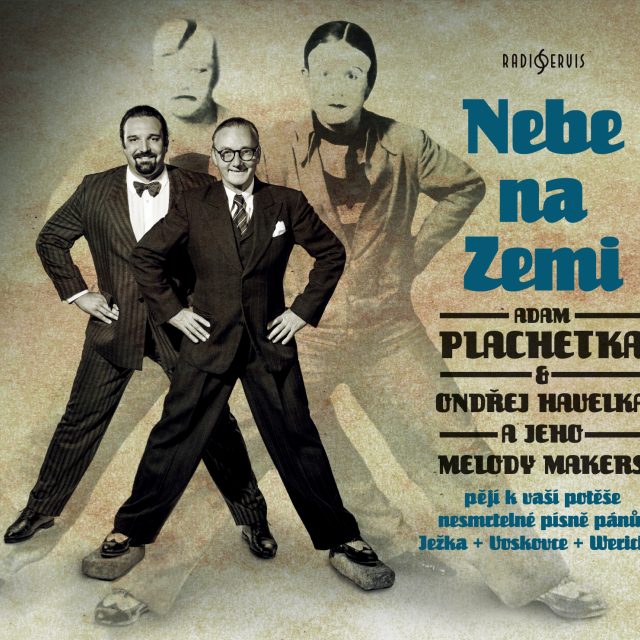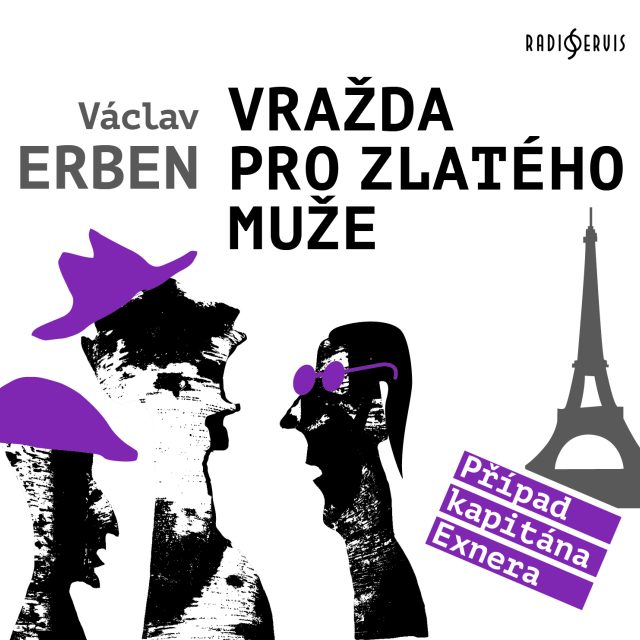František Škroup
* 3 June 1801 Osice † 7 February 1862 Rotterdam
František Škroup was one of the most important music personalities in the first half of the 19th century. He was active as a singer, a conductor and a composer. Today Czechs associate his name primarily with the music for their national anthem Kde domov můj (Where is my Home?) from Tyl’s Czech cultural revival play Fidlovačka or with the first opera on a Czech text entitled Dráteník (The Tinker).
František Škroup was born into a musical family on 3 June 1801 in Osice near Pardubice. He received the first elements of his musical education from his father, the composer Dominik Škroup. František’s brother Jan Nepomuk Škroup, who was ten years younger, gained fame as an assistant conductor in the Estates Theater, the director of the Žofín Academy and as composer of the opera Švédové v Praze (The Swedes in Prague). František Škroup came to Prague in 1812. For a year he was a boy soprano in the Týn Cathedral and in the Loreto Church. Between 1814 and 1819 he studied at the gymnasium in Hradec Králové. His first compositions date from this period. After graduating from the gymnasium, he was a student of philosophy in Prague, changing in 1822 to law; owing to the ever stronger lure of music and the theater, however, he failed to complete his studies. Very soon he began to perform as a soloist in the Estates Theater. He ended his singing career in 1828 when he was obliged to concentrate more on his conducting activities. On 1 September 1827 he was named assistant conductor of the Estates Theater, and from the beginning of 1837 principal conductor responsible for directing the German ensemble of the Estates Theater while the Czech ensemble was directed by his brother Jan Nepomuk.Škroup’s work as a conductor in that era of the Estates Theater is appraised very positively. Some of his greatest achievements were the first performances of Wagner’s operas in the Czechlands: Tannhäuser (1854), Lohengrin (1856) and The Flying Dutchman (1856). In addition to conducting in the Estates Theater, he led the student orchestra of the Prague Conservatory in 1843 after the death of its director Friedrich Dionys Weber. From 1836 to 1845 he was cantor in the Reformed Synagogue in Dušní Street, and after 1850, choirmaster of the Benedictine monastery in Břevnov near Prague.In 1857 when he resigned from the Estates Theater, he founded his own school of music, which, however, survived for only two years. In 1860 he became director of the Žofín Academy, but only one year later left that post in order to accept the position of conductor of the newly created German opera in Rotterdam in the Netherlands, where he died on 7 February 1862 and where he is buried.František Škroup wrote 45 works with opus numbers, but in actual fact, he composed nearly three times that many works but failed to assign opus numbers with any regularity. He wrote works in almost all genres of music.The greater part of his oeuvre consists of songs, mostly with German texts (Mutterliebe, Die Schildwache, Wanderlieder etc.); only one cycle, Matčiny písně (Mother’s Songs) has Czech texts modeled after Maria Čacká. The individual songs have sometimes German and sometimes Czech texts ( the latter by František Ladislav Čelakovský, Josef Krasoslav Chmelenský and Simeon Karel Macháček). The text for the song Das bess’re Land was probably written by Škroup himself. He set several songs with unusual accompaniments by horn, cello, clarinet, harp or French horn. For his times he wrote a relatively small number of choruses.As for larger vocal-instrumental works, Škroup composed two masses (in C minor and D minor) and several occasional cantatas.Škroup’s symphonic pieces, like the chamber ones, are of lesser significance. He composed three string trios and three string quartets. All six of these chamber works were written around the same time.Owing to his work as a conductor in the Estates Theater, Škroup has to his credit a number of pieces for the theater, beginning with insertions for various works all the way to grand operas. He wrote a total of eight operas, four of them to German libretti.František Škroup’s very first operatic work was Dráteník, to which he assigned the opus number 1. The premiere took place in 1826 in the Estates Theater. The libretto for this comic opera was written by Josef Krasoslav Chmelenský. The work has entered history as the founding work of Czech national opera. It is the most often performed of Škroup’s operas. His second most popular opera is another work set to a libretto by Chmelenský, the patriotic singspiel Libušin sňatek (The Marriage of Libuše). Of his operas with German texts, Der Meergeuse and Kolumbus have had the most success.
Author: Pavel Petráněk
E-shop Českého rozhlasu
Kdo jste vy? Klára, nebo učitel?
Tereza Kostková, moderátorka ČRo Dvojka


Jak Klára obrátila všechno vzhůru nohama
Knížka režiséra a herce Jakuba Nvoty v překladu Terezy Kostkové předkládá malým i velkým čtenářům dialogy malé Kláry a učitele o světě, který se dá vnímat docela jinak, než jak se píše v učebnicích.































